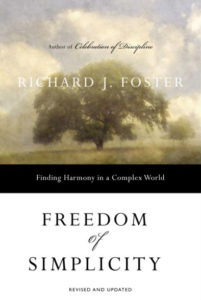We might well pray for God to invade and conquer us, for until He does, we remain in peril from a thousand foes. We bear within us the seeds of our own disintegration. Our moral imprudence puts us always in danger of accidental or reckless self-destruction. The strength of our flesh is an ever present danger to our souls. Deliverance can come to us only by the defeat of our old life. Safety and peace come only after we have been forced to our knees. God rescues us by breaking us, by shattering our strength and wiping out our resistance. Then He invades our natures with that ancient and eternal life which is from the beginning. So He conquers us and by that benign conquest saves us for Himself.A. W. Tozer in The Divine Conquest




